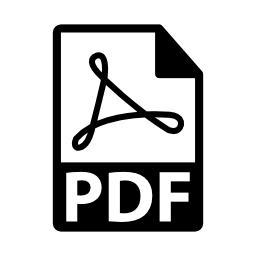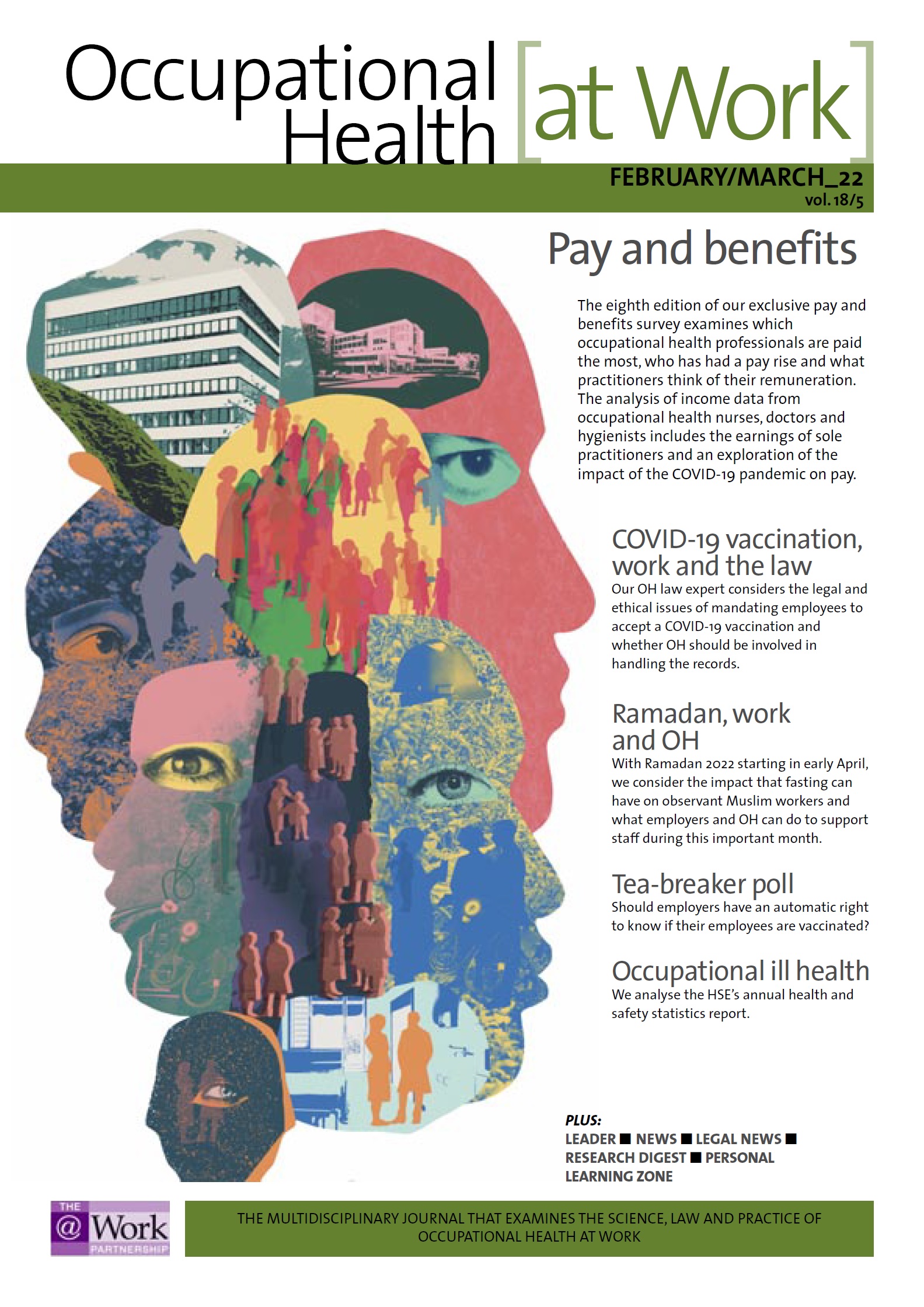February/March 2022 (vol. 18/5)
ContentsFeaturesNewsLegal
NewsResearch DigestResearch PlusCPD
 Ramadan and work
Ramadan and work
An occupational health perspective
Summary:
Occupational physician Dr Momeda Deen explores the impact that fasting during Ramadan can have on observant Muslim workers and what employers and OH can do to support staff during this important month.
During the month of Ramadan, Muslims do not eat or drink between the hours of sunrise and sunset. Instead, they have two meals a day: a suhoor, which is just before daybreak; and an iftar, which is directly after sunset. The purpose of this, according to Islamic theology, is to attain a deeper connection with Allah, develop the qualities of righteousness, abstain from harmful deeds and practise self-control. For the most part, observance of Ramadan is the same for Sectarian Muslims (Sunnis and Shias).
The Islamic lunar calendar is based on the cycles of the moon. Thus, Ramadan moves forward about 10 days each year in comparison to the Gregorian calendar.
The author makes a number of suggestions in the article for employers and OH professionals to better help Muslim workers who are taking part in Ramadan. They are as follows:
CONCLUSIONS
■ During the month of Ramadan, Muslims do not eat or drink between the hours of sunrise and sunset. Instead, they have two meals a day: a suhoor, which is just before daybreak; and an iftar, which is directly after sunset
■ Eating and drinking are not the only activities to avoid during Ramadan. During daylight hours, Muslims also abstain from other activities, such as fighting, smoking and sex, in order to create the mental space to focus on religion
■ A worker with underlying health issues must carefully consider the impact of fasting on the control of their condition and assess how this may affect their fitness for work and ability to do their job safely, without placing colleagues or members of the public at higher risk
■ It may be advisable for a worker in a safety-critical job, and who wishes to fast, to speak to their line manager well in advance and look at appropriate task rotation, or consider alternative duties (where, for example, the wearing of full personal protective equipment is not required)
■ Managers should not assume that all Muslim staff would be fasting. Some Muslim colleagues may not be fasting, as they may be exempt – for example, women during menses, those travelling, and workers with a long-term illness incompatible with safe fasting. Workers and managers are advised to discuss Ramadan to ensure all parties are aware of any issues that may arise
■ Workers may break their fasts at work after sunset and may suggest sharing their food with non-Muslim colleagues. This is a good way of enhancing understanding of Ramadan in the workplace and improving relationships within a working team
To read the article in full and gain access to other useful OH resources, you can subscribe to the journal HERE
Dr Momeda Deen is an accredited specialist in occupational medicine and provides occupational health services to the NHS and a wide range of other companies.
Author: Deen M
Occupational Health at Work February/March 2022 (vol. 18/5) pp34-40



